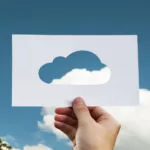The technology to save lives is powerful. We use technology on a daily basis that makes our lives easier. This technology is also being used in the nursing industry, helping patients receive the care they need faster and more efficiently.
But which technologies are helping change the face of the nursing industry?
1. Wireless Patient Monitoring
Patient monitoring is an important part of patient care, and it’s a technology that is being incorporated into several items that people don’t even realize. For example, the hospital bed that a patient stays in may have sensors and chips integrated into the design that are able to:
- Monitor the patient’s blood pressure
- Check the patient’s weight
- Determine if a patient moves
Patients don’t always listen to their doctor’s orders, so it’s not uncommon for a patient to stand out of their bed and fall onto the floor. Bedsores, from a lack of movement, can also be eliminated thanks to the bed’s ability to detect movement.
Nurses are able to respond to changes in a patient’s status faster and more accurately with technology.
2. Real-Time Tracking Services
Real-time tracking is used for more than just finding your car or your keys. We’re finding a major uptick in real-time location services in the nursing industry. Why? There’s a lot of location applications that can be used on all sides of the nursing industry.
A few of these applications include:
- Medical equipment location tracking
- Tracking dementia patients or patients are at risk of running away or wandering
Location tracking can also be embedded into wristbands and alert staff when a patient or machine goes past a certain zone. When integrated into wireless communication systems, this technology is even more powerful.
Transmitters can be placed in men’s scrub pants so that nurses are promptly alerted of any issues that occur with a patient.
3. Electronic Healthcare Records
Electronic healthcare records make it much easier for hospitals and healthcare professionals to gather up a patient’s medical history in seconds. There are still privacy concerns that often slow the process up, but the healthcare records have already helped lessen administrative work.
All it takes is a few keystrokes for healthcare records to be pulled up.
Why does this matter?
Electronic healthcare records will allow for:
- Faster access to patient history
- Less human error
- Error checking when prescribing medications
- Alerts on drug interaction complications
Electronic healthcare records offer the redundancy and error checking needed to ensure that the healthcare services provided are as accurate as possible.
4. Drug Delivery Systems
Drug delivery is prone to human error. A lot of hospitals rely primarily on nurses to come the patient’s bedside and administer drugs. The problem is that a lot of these professionals are overworked.
When moving from one patient to the next, it’s easy for medication to get mixed up or even be administered late.
Technology is helping medical professionals avoid these errors.
Implantable devices are being utilized as drug delivery systems. These systems allow for nurses to schedule dosing that’s often complex. Since all of these systems can be prescheduled and setup, they’re able to:
- Reduce nurse time spent with a patient so that they can work on other areas of care
- Reduce human error, which can lead to severe complications and even death
Drug delivery systems offer a near error-proof way to administer drugs, and these systems are helping improve patient outcome in the process.
5. Smart Alarms
Nurses and medical staff have to run into a patient’s room when an alarm goes off. These alarms indicate that there’s a serious issue occurring, whether the person’s blood pressure dropped or the patient has flat-lined.
But, and thankfully, a lot of these alarms are false.
The issue with a false alarm is that it’s a major resource waste for hospitals, and it also stresses patients out.
Alarm fatigue is a real issue, and it can lead to future responses being slower. Smart alarms are able to provide the additional checks needed to offer “smarter” alarms. Not only are these alarms smarter, but they reduce the false alarms that are plaguing the industry.
The alarms will check blood pressure or double check readings before sending an alert to reduce the errors that traditional alarms have.








